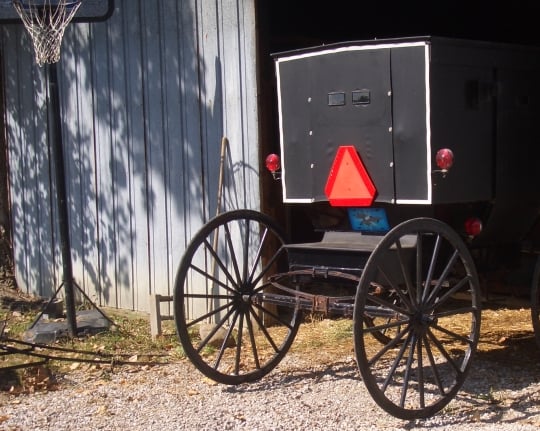Dr. James DeLine On 30 Years Treating Amish In Wisconsin
Two readers wrote to make sure I didn’t miss this article. Dr. James DeLine has had a remarkable career as the “country doctor” of a small Wisconsin village – spending a good portion of his time treating Amish.
The article is a long look at his work and career. I was drawn to this story for his involvement with the Amish, but DeLine’s background story is compelling in itself.
Some of the Amish DeLine treats are stricken with rare diseases. The doctor collaborates with geneticists to help identify Amish individuals affected with highly uncommon genetic ailments.
DeLine discusses his work in the short video below.
I also recommend taking the time to read the full article (Milwaukee Journal Sentinel). Here are a few things that stood out to me:
1) Sacrifice: For some reason, DeLine gave up a lot to take this job in a 700-person village. In 1983 he could have a commanded an $80,000 salary; instead he agreed to a quarter of that to set up shop in La Farge. The intangible rewards of work in a rural community like must be great in DeLine’s view.
2) Marrying close relations: One Amishman is surprisingly frank on the practice of marriage between relatively close relations, seen in some Amish communities. When John Yoder found out two of his sons inherited a rare condition which causes vision problems, it troubled him: “’It kind of changed my opinion on marrying too close,’ he says. ‘Me and my wife are actually related to each other. We’re second cousins. It happens a lot among the Amish.'”
3) Special genetic screening for Amish: Nearly 200 diseases are found with increased frequency in people of Plain backgrounds. A special test has been developed for the Amish which screens for over 120 of them. Some are extremely rare, and occur predominantly in these populations. DeLine has “at least two patients with diseases never described in medicine.” He has seen some patients with over 30 of the diseases screened for on the Amish test.
4) Not religious, but respectful: DeLine is described as “not a religious man”, yet he respects his patients’ beliefs: “he has always viewed them as the ultimate decision-makers.” This was surely critical in winning trust in a place where some Amish receive care from herbalists and natural medicine specialists.





The Amish are very lucky to have you as their doctor. I had an uncle who was also a country doctor out in Rifle Colorado but it wasn’t for the Amish. He was well liked and humble.He was happy to live in a small modest house.His wife was very jolly to all his patients. She would invite them in for coffee or tea on her porch while waiting for the doctor to come home as he would travel all over in that area.I had fun reading your story.God Bless you!